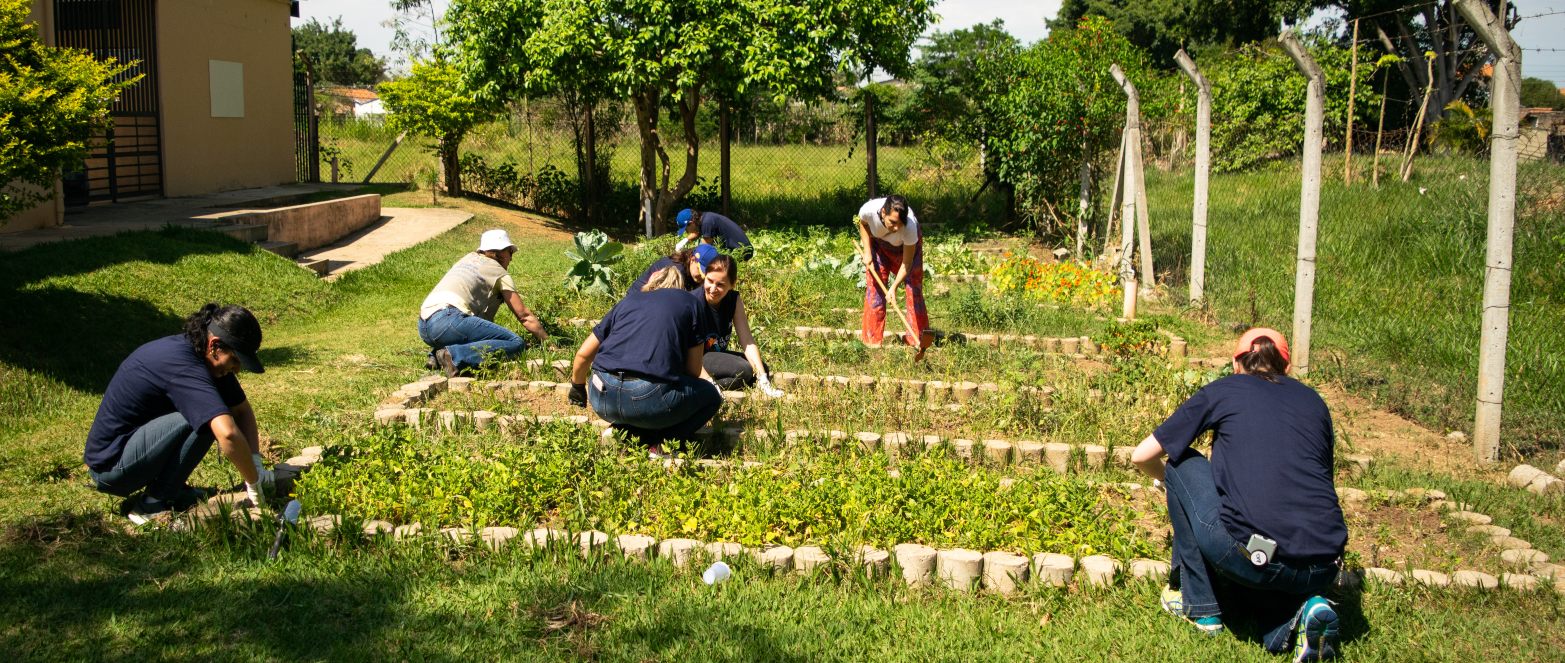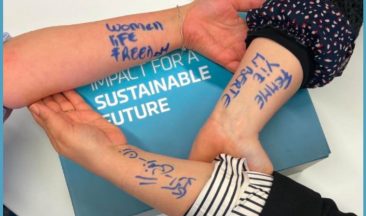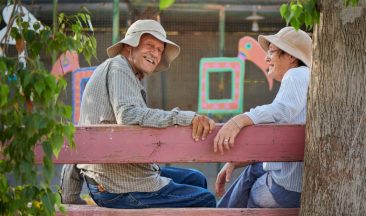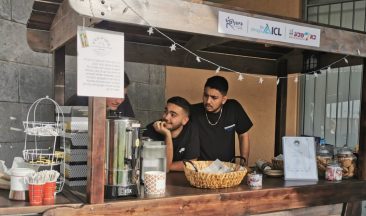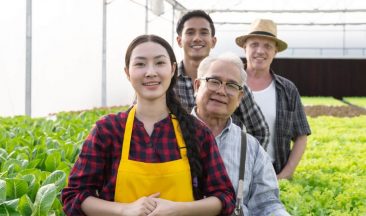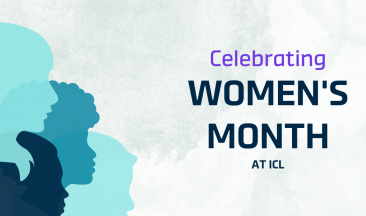Four years ago, vegetables, herbs, and fruit trees started to bloom in unused urban spaces. Meet some of the green urban and community garden projects.
Reviving the wasteland. Israel’s first Prime Minister, David Ben Gurion, had a vision of a flourishing desert for Israel’s southern district.The southern Israeli town of Yeruham has certainly been flourishing in recent years. We’re not talking about demographic or economic growth, but rather about a unique green initiative that involves the development of community gardens in neighborhoods that are now laden with vegetables, herbs, and fruit trees for the residents’ enjoyment.
The project began about four years ago as a joint pilot by ICL and the local council, under the “Thinking – Doing” program, which was designed to strengthen the communities in Israel’s southern district. As part of the program, ICL encourages partnerships between residents, local authorities, entrepreneurs, employees and the business sector. Together, they raise ideas for improving and strengthening community resilience and quality of life for residents.
To kick off the project, ICL and the local council asked the residents of Yeruham to submit proposals for sustainability initiatives. The first initiative chosen involved the development of green community gardens in open and neglected areas of the neighborhoods. ICL has been leading the project since its inception, which includes assisting with strategic thinking, professional guidance, financial assistance, and connections with other authorities and entities.
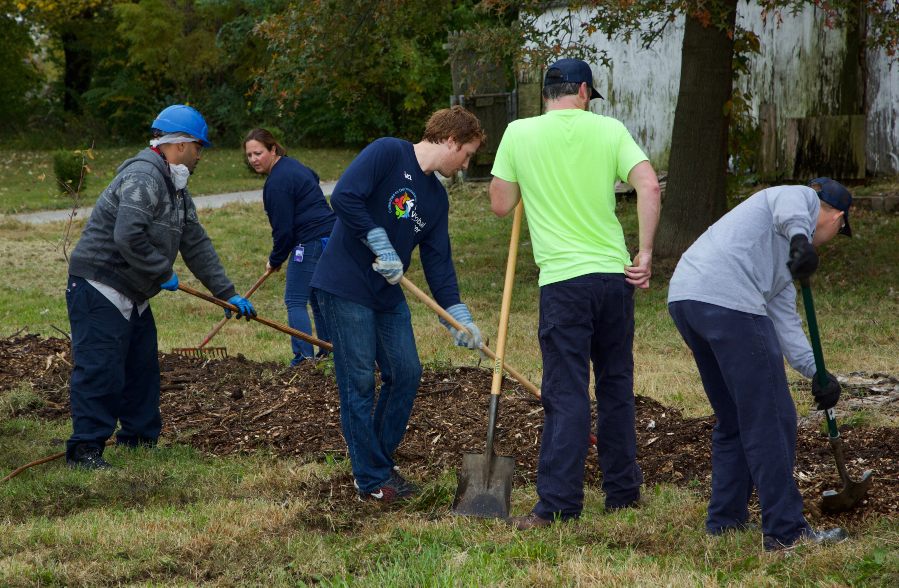
You may also be interested in:
Contributing to the Sustainable Future of Mankind
More Transparent, More Accessible
There are currently five community gardens that were developed under this initiative in different neighborhoods in Yeruham. In these gardens, many community activities are held each week, including activities for children, lectures for adults, bonfires, and activities for families. In addition, there is also a community garden in the community center, and three more community gardens are planned by the end of the year 2020.
In light of the great success of the initiative, the local council has appointed Yoel Selwyn to coordinate the project. “The main idea behind community fairness is to create good neighborly relations between residents and encourage them to take responsibility for their home environment,” Selwyn says. “The next step will be to build a greenhouse that will provide all the seedlings for the gardens in Yeruham. We intend to make this an educational hub.”
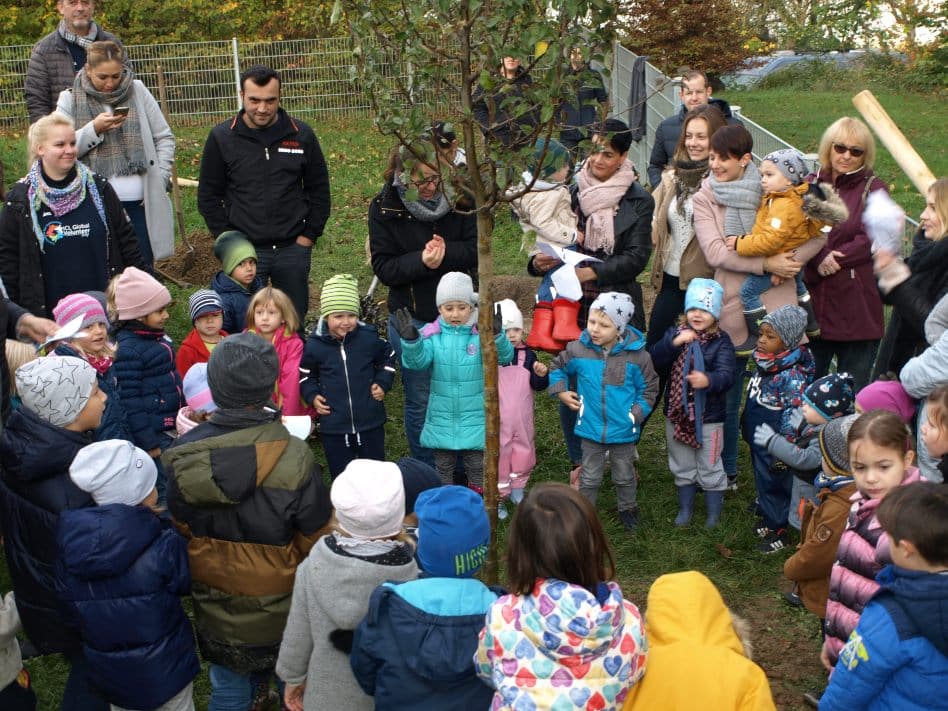
The residents, of course, are pleased. Mira Sandrusi, a member of one of the neighborhood committees and a leader in establishing and operating the garden in the neighborhood, says that the garden is an incentive for bringing residents out for cultural activities close to their homes. “The garden acts as a bridge that connects the neighborhood’s old and new residents.” However, apart from the social aspects of the initiative, residents can use as much of what the community garden produces as they want. This includes beets, lettuce and carrots, seven species of fruit trees, and herbs such as lavender, mint, and wormwood.
Sandrusi is an art teacher by profession, and recently she began to initiate ideas of her own to connect the residents to her field as well. “I connected the garden to the topic of art. For example, we painted the garden using oils we produced from the plants, and on Independence Day we created flags,” she says. “Everyone takes part here and we have an activity schedule throughout the year. Due to its importance as a cultural center and as a meeting place for the residents, the garden has earned its own nickname that reflects its significance among the residents — the ‘Garden of Life.’”
Israel is hardly the only place you can find evidence of the benefits of ICL’s Community programs. Similar projects have been blooming in other countries, such as Poland, Brazil, the U.S. and others. In Brazil, for example, ICL’s São José dos Campos site has been taking part in the effort to replant the nearby neighborhood and public health center with grass and plants, creating a community garden featuring lovely flower beds. This was done with the support of the Office for City Planning and Sustainability at the local municipality and the Limoeiro Public Health Center, under the coordination of João Nóbregae. In another ICL site in Brazil, the Cajati Plant, Phelipe Bezerra and two volunteer teams from the site planted a garden in the adjacent public school with grass, flowers and 35 native trees, installing tables with educational games for the children to play with and enjoy.

Barbara Stafford from the ICL U.S. Carondelet Plant told us how the plant team of volunteers worked on a community garden, cleaning up around the city block, cutting trees down, dismantling a structure, painting a flag pole, planting trees and plants, and spreading mulch. This project was made possible thanks to a partnership with the Carondelet Community Betterment Foundation.
The ICL Specialty Fertilizers site, Totana (Murcia) in Spain, assigned Maria Jose Martinez and Anotonio Jesus Lopez to build a “Solidarity Route” for the neighboring Sierra Espuna Regional Park, together with the Association of Rare Diseases D ’Genes. Collecting donations with a charity piggy bank enabled the planting of 100 native plants in the park. This is an ongoing project – volunteers will continue watering and caring for the plants on a monthly basis.
Marta Lipska from ICL-Poland said about her site’s Community project: “We organized the planting of trees in a nursing home. Older residents of the house were involved. After the planting, everyone had the opportunity to listen to a lecture about planting and caring for plants. We also organized the planting of trees and grass in a local sport center for children. Later, as part of the entertainment, we had a bonfire with delicious food for everyone who joined our activities.”
These projects are just a few examples of how ICL is improving the quality of life for the communities in which it operates and strengthening the relationships with and among these communities’ residents.
